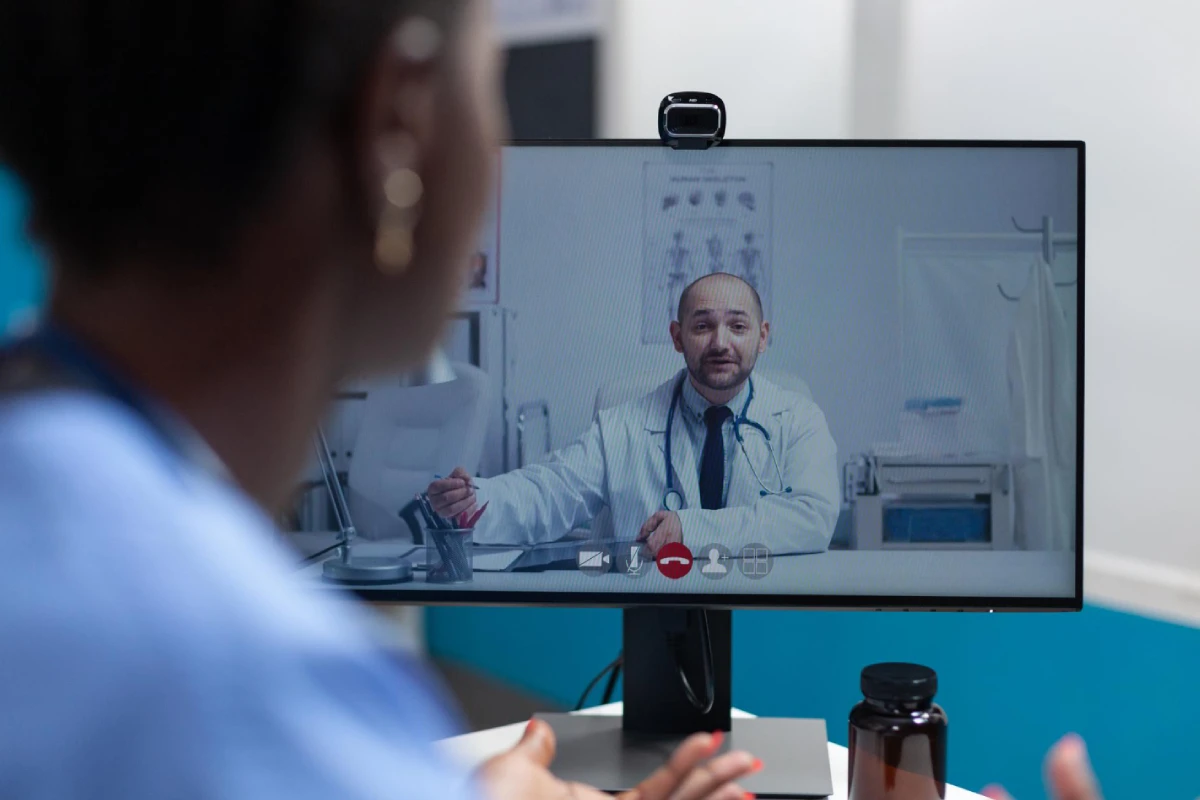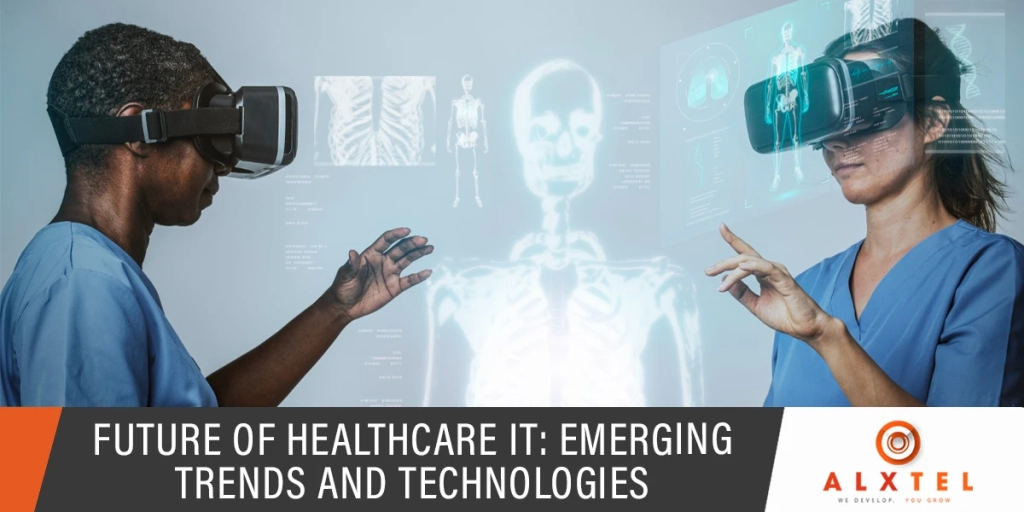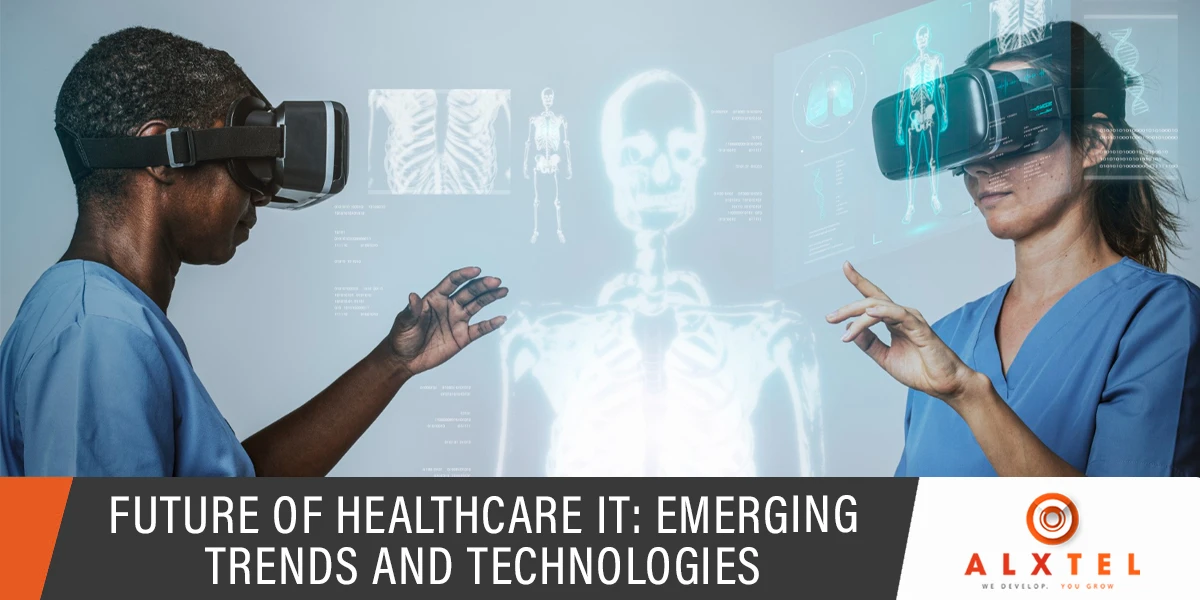The Impact of Telemedicine on Healthcare Industries
In the fast-evolving landscape of healthcare, the integration of technology is reshaping how patients access medical services, and IT companies like AlxTel are at the forefront of this transformation. Telemedicine impacts healthcare, the practice of providing healthcare remotely through digital communication, has become a pivotal force in the healthcare industry. Further below we will explore the profound impact of telemedicine on the healthcare sector, highlighting the invaluable contributions of AlxTel, an IT company that is pioneering innovative solutions in this field.
Telemedicine has gained momentum thanks to advancements in communication technologies, increased access to the Internet, and the demand for more patient-centric healthcare delivery. So, these factors have fostered a favorable environment for IT companies like AlxTel to develop and implement telemedicine solutions.
Telemedicine is a multifaceted term that includes a variety of remote healthcare services. Teleconsultations, remote monitoring, telepharmacy, and teletherapy are examples of these services. Telemedicine’s major goal is to give patients quick and efficient access to healthcare providers while preserving the quality of care.
Telemedicine Impacts Healthcare: Improved Access
Telemedicine has significantly enhanced healthcare accessibility, especially for individuals residing in remote or underserved areas. Patients who would otherwise struggle to reach healthcare facilities due to geographical barriers can now consult with medical professionals through video calls, enabling them to receive timely medical advice, diagnoses, and treatment plans.
Our telemedicine solutions are designed to bridge the gap between patients and healthcare providers. Their user-friendly platforms make it easy for patients to connect with doctors and specialists, ensuring that no one is left without medical support.
Enhanced Patient Engagement
Telemedicine impacts healthcare by promoting active patient participation in their healthcare management. Through Internet portals, patients can easily access their medical data, test results, and treatment plans. This openness strengthens the doctor-patient connection and allows people to take charge of their health. Hence, we provide information technology solutions emphasizing patient participation by providing secure and user-friendly platforms for patients to access their medical information and communicate with their healthcare professionals.
Telemedicine helps healthcare institutions optimize their resources. It reduces the need for physical space, minimizes administrative overhead, and streamlines appointment scheduling, leading to cost savings. The efficiency gains achieved through telemedicine can be reinvested in improving the quality of care. So, AlxTel offers healthcare providers advanced telemedicine tools that increase operational efficiency, helping them allocate resources more effectively and provide better care to patients.
Telemedicine Impacts Healthcare: Timely Medical Consultations
Telemedicine minimizes wait times for medical consultations. Patients can quickly connect with healthcare professionals, reducing the delays that can lead to complications or prolonged suffering. This immediate access to medical expertise can be life-saving in emergencies. So, Our telemedicine solutions include features that enable real-time consultations, ensuring that patients can reach out to healthcare professionals promptly, even in urgent situations.
Telemedicine plays a critical role in managing chronic conditions. Patients with ongoing health issues benefit from regular remote monitoring, enabling healthcare providers to intervene at the earliest signs of deterioration. This proactive approach enhances the overall quality of care for chronic disease patients. We include solutions that support remote monitoring, allowing healthcare providers to keep a close eye on patients with chronic conditions and offer timely interventions.
Telemedicine Impacts Healthcare: Reduced Healthcare Costs and Enhanced Data Security
One of the major advantages of telemedicine is its low cost. It lowers healthcare expenditures for both patients and providers by lowering the need for in-person visits and hospitalizations. Patients can obtain medical advice remotely, which minimizes the pressure on emergency rooms. AlxTel’s telemedicine solutions are meant to save healthcare organizations money while providing patients with high-quality care.
The security of patient health data is a top priority in healthcare. AlxTel, as an IT company, ensures the highest standards of data security in its telemedicine solutions. By using encryption and compliance with industry regulations such as HIPAA, patient information remains safe and confidential. AlxTel’s commitment to data security is evident in its telemedicine platforms, which employ robust encryption and comply with all necessary regulations to protect patient information.
Our telemedicine solutions are designed to seamlessly integrate with existing healthcare systems. This interoperability ensures that healthcare institutions can adopt telemedicine without disrupting their current processes, leading to a smoother transition.
Expanded Reach of Specialized Care
Telemedicine eliminates geographical boundaries, making it possible for patients to access specialized care regardless of their location. Patients can consult with experts from around the world, benefiting from a broader pool of medical knowledge and expertise. AlxTel’s telemedicine solutions make it easier for healthcare institutions to collaborate with specialists and offer specialized care to patients in need.
The COVID-19 pandemic accelerated the adoption of telemedicine. It became a lifeline for patients who needed medical care while minimizing the risk of virus transmission. While the pandemic may eventually subside, telemedicine is here to stay, offering a hybrid model of healthcare delivery that combines in-person visits and remote consultations.
We played a vital role in supporting healthcare institutions during the pandemic by providing telemedicine solutions that enabled them to continue offering care while adhering to social distancing guidelines.
Telemonitoring Technologies and wearable Devices
Remote monitoring is a significant development in telemedicine, enabling healthcare professionals to track patient vital signs, chronic conditions, and other health parameters without the need for in-person visits. Therefore, AlxTel’s telemedicine solutions include features for seamless remote monitoring, ensuring that healthcare providers can maintain a constant watch over their patients’ health.
Wearable devices such as smartwatches and fitness trackers have further expanded the scope of telemedicine. These devices collect health data in real time, providing healthcare providers with valuable insights into their patients’ health and enabling proactive interventions. AlxTel’s IT solutions integrate seamlessly with these wearables, ensuring a comprehensive approach to patient care.
Challenges and Opportunities in the Telemedicine Ecosystem
Today’s telemedicine ecosystem includes a diverse set of stakeholders, including healthcare providers, patients, insurers, IT firms like AlxTel, and regulatory authorities. The foundation of this ecosystem is trust, privacy, and data security. While telemedicine offers several advantages, it also has severe drawbacks. Regulatory compliance, discrepancies in access to technology, and the need for healthcare personnel to adapt to new care delivery models are among the issues. AlxTel’s telemedicine solutions handle these problems by remaining compliant with regulations and providing user-friendly platforms to ensure that telemedicine benefits both patients and healthcare practitioners.
Teletherapy, a subset of telemedicine, has seen a significant surge in demand, especially in the context of mental health support. The convenience and privacy offered by teletherapy platforms are vital for individuals seeking therapy and counseling services. AlxTel’s IT solutions provide secure and user-friendly teletherapy platforms that cater to the growing need for remote mental health support.
Telemedicine Beyond Borders
The remarkable success of telemedicine extends beyond borders and national boundaries. As we continue to explore the impact of this technology, it becomes apparent that it has the potential to transform healthcare on a global scale. Telemedicine impacts healthcare by enabling individuals in remote or underserved areas to connect with healthcare professionals from across the world. This means that patients in developing countries can access medical expertise that was previously out of reach. AlxTel’s global perspective and telemedicine solutions help bridge the healthcare divide, contributing to global health equity.
During natural disasters or humanitarian crises, telemedicine can be a lifeline. Healthcare professionals can provide critical support remotely to affected regions, helping coordinate emergency care and ensuring that those in need receive medical attention promptly. Hence, AlxTel’s agile and adaptable telemedicine solutions are invaluable in such situations. Telemedicine impacts healthcare by providing facilities for cross-border consultations. Patients can seek opinions and treatments from specialists in other countries, eliminating geographical constraints. So, AlxTel’s platform ensures that patients can easily access and connect with healthcare professionals around the world, expanding their options for specialized care.
Telemedicine plays a vital role in medical tourism. Patients traveling to foreign countries for medical treatments can maintain contact with their home-based healthcare providers, ensuring continuity of care and smooth transitions between healthcare systems. Hence, AlxTel’s telemedicine solutions support this seamless patient experience. Telemedicine fosters international collaboration among healthcare professionals and institutions. They can exchange knowledge, share best practices, and work together on research and complex medical cases. So, AlxTel’s telemedicine platforms encourage such collaboration, ensuring that healthcare professionals can connect with their peers worldwide.
The Future of Telemedicine: A Global Perspective
Telemedicine is essential for public health initiatives on a global scale. It facilitates vaccination campaigns, health education, and remote disease tracking. In times of pandemics, this technology becomes indispensable in monitoring the spread of diseases and providing timely healthcare advice. So, AlxTel’s commitment to global health extends to supporting public health initiatives through its telemedicine solutions. It is instrumental in medical education and training, enabling students and professionals to access remote learning resources, participate in virtual medical simulations, and observe surgeries and procedures from anywhere in the world. Hence, AlxTel’s telemedicine solutions are designed to support medical education and training needs.
Governments and international bodies will work to establish clearer regulations and standards for telemedicine, ensuring that patient safety and data security remain paramount. So, the range of services offered through telemedicine will continue to grow. This will include areas like telepharmacy, teleradiology, and remote surgical procedures.
What more it has to offer?
Global telemedicine networks will form, connecting healthcare professionals, institutions, and patients from around the world. AlxTel’s global perspective positions them as a key player in these networks. Artificial intelligence will play an increasingly significant role. Telemedicine impacts healthcare by improving diagnostics and treatment recommendations. Machine learning algorithms will analyze vast amounts of medical data to assist healthcare professionals in providing better care. Virtual reality (VR) and augmented reality (AR) technologies will offer new possibilities for remote surgical training, patient education, and immersive teletherapy sessions.
Blockchain technology will enhance the security of telemedicine platforms by ensuring the integrity and privacy of health records and patient information. As humanity ventures into space, telemedicine will be a critical component of space healthcare. Astronauts will rely on remote consultations and medical guidance from experts on Earth. Hence, companies like AlxTel will provide the technological infrastructure.
AlxTel’s dedication to providing innovative and reliable telemedicine solutions positions them as a global leader in reshaping healthcare. Hence, their global perspective, commitment to patient-centric care, and contributions to healthcare access make them key players in the ongoing transformation of the healthcare industry.
The Final Words
Telemedicine is not just a technological innovation. It represents a fundamental shift in how healthcare is accessed and delivered, transcending geographical and logistical barriers. So, the impact of telemedicine on healthcare industries is profound. So is the role of IT companies like AlxTel in shaping this transformation and it cannot be overstated.
As we move forward into an era where healthcare knows no boundaries. Where specialized care is accessible to all, and where technology enables a more patient-centric approach. It is clear that telemedicine is here to stay. So, its global reach and enduring influence on healthcare have forever changed the way we think about healthcare delivery. The future is one where healthcare is more accessible, efficient, and patient-centric than ever before. It is all thanks to the innovative solutions provided by IT companies like AlxTel.
Frequently Asked Questions:
How does telemedicine impact the accessibility of healthcare services?
Telemedicine impacts healthcare by enhancing the accessibility of healthcare services by allowing patients to consult with healthcare professionals remotely. This is particularly beneficial for individuals in rural or underserved areas who may face geographical barriers to accessing medical care. Telemedicine ensures that patients can receive medical advice, consultations, and even treatments without the need for in-person visits, making healthcare more accessible to a wider population.
What are the key advantages of telemedicine for healthcare providers?
Telemedicine offers several advantages for healthcare providers. It enables them to optimize resource allocation, reduce administrative overhead, and improve the efficiency of healthcare delivery. Additionally, Telemedicine impacts healthcare by helping healthcare institutions reach a broader patient base, collaborate with specialists, and provide specialized care. Overall, telemedicine contributes to better patient outcomes and cost savings, making it an invaluable tool for healthcare providers.
How has telemedicine evolved in response to the COVID-19 pandemic, and will it continue to be relevant in a post-pandemic world?
The COVID-19 pandemic accelerated the adoption of telemedicine as a means to provide medical care while adhering to social distancing guidelines. Telemedicine played a crucial role in ensuring that patients continued to receive healthcare services during lockdowns and beyond. In a post-pandemic world, we expect that telemedicine will remain relevant. It will offer a hybrid model of healthcare delivery that combines in-person visits and remote consultations. Its role in healthcare is expected to continue evolving and expanding to better serve patients and providers.
Need support? You are our priority, We’ve got you covered.
Rapid response time to service requests, responding to all customer feedback to get in touch.
Our goal is to supply you with the best possible customer service across all our products and solutions. We look forward to helping you make the most of your AlxTel platform.












